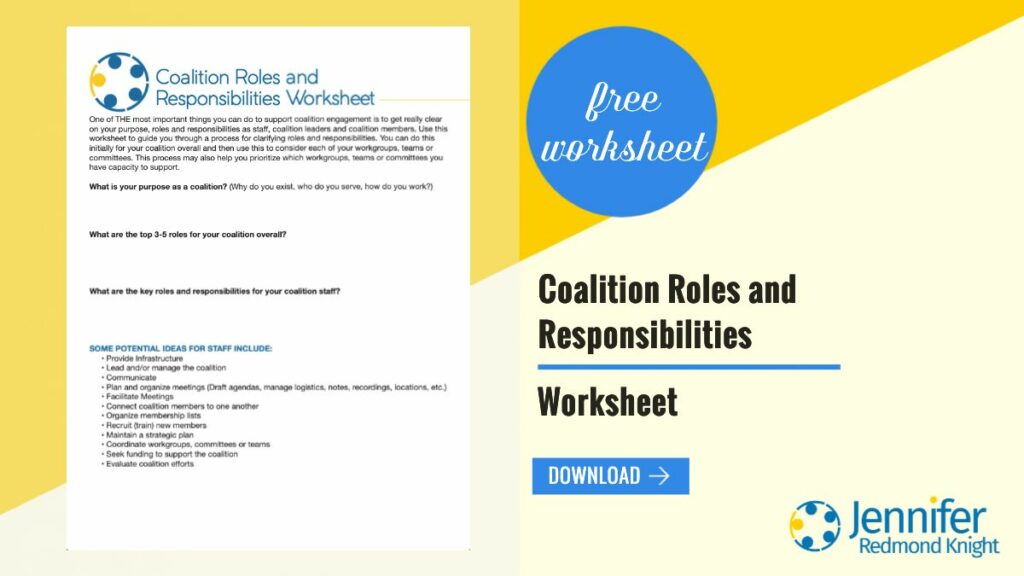When you are working in coalitions and partnerships, there are often very few paid staff. Sometimes you are the only one and you may only be paid part-time to do the work of the coalition. In a coalition or partnership, there are always more needs and areas of interest than time to adequately implement them. If you are particularly passionate and proficient at doing the work of the coalition, you can easily become the one doing most of the work. While this may be ok for a limited period of time, if this continues, you can easily become exhausted, overwhelmed and frustrated. You may want others to do the work but you feel stuck because no one is doing the work! So what do you do? This week, we are highlighting three steps to take when you are the only one doing the work.
Get specific.
When we are in a place of doing all the work and continuing to have more things added to our plate, our first step is to stop and reflect. Write down all the things you are doing and all the things you think you need to be doing but don’t have time to do right now. Once you have written it all down, be specific about the tasks and organize them in a way that makes sense to you. As you reflect upon this specific list, consider the areas that you particularly enjoy doing and those that you are really good at doing. Pay attention to those and consider how you can continue to work in those areas and minimize work in other areas. Also, consider which of these areas are current priorities and which areas can be addressed once you have more capacity.
Check in.
Once you have your specific list, check in with other team members. This approach is usually most effective in a one-on-one meeting. Begin by asking questions to better understand each team member’s situation and perspective. Consider areas of passion, proficiency and capacity. As Stephen Covey reminds us, Seek first to understand, then be understood. After actively listening and engaging in discussion, share some elements of your specific list that you think may align with the team member. Even if the team member is not yet confident in a specific area, if there is an interest, this could be a developmental opportunity.
Delegate.
Once you have gained clarity on what the work is and what you and your team members may be able to do toward the work, begin delegating some of the work that you have been doing. Recognize that your team members’ may need time, training and specific guidance at first so that you can effectively delegate. As part of this delegation process, remember that neither your team member nor you have to be perfect in everything you do. As you practice sharing the work, you also are practicing letting go of the need for control. While this skill is more difficult for some of us than others, if we are going to be in a place of rhythm and focusing on the work that we particularly enjoy and are good at doing, we have to practice! As you practice delegating, your work will be different. Instead of you doing all the work, you are spending more time training and coaching others in doing work. This means you will likely need to prioritize fewer things as a coalition.
What about you? What are you going to do this week to get specific, to check in or to delegate?
One of the resources that can help you in this process is my free worksheet on Coalition Roles and Responsibilities. Check it out here!

Photo by Wesley Tingey on Unsplash

